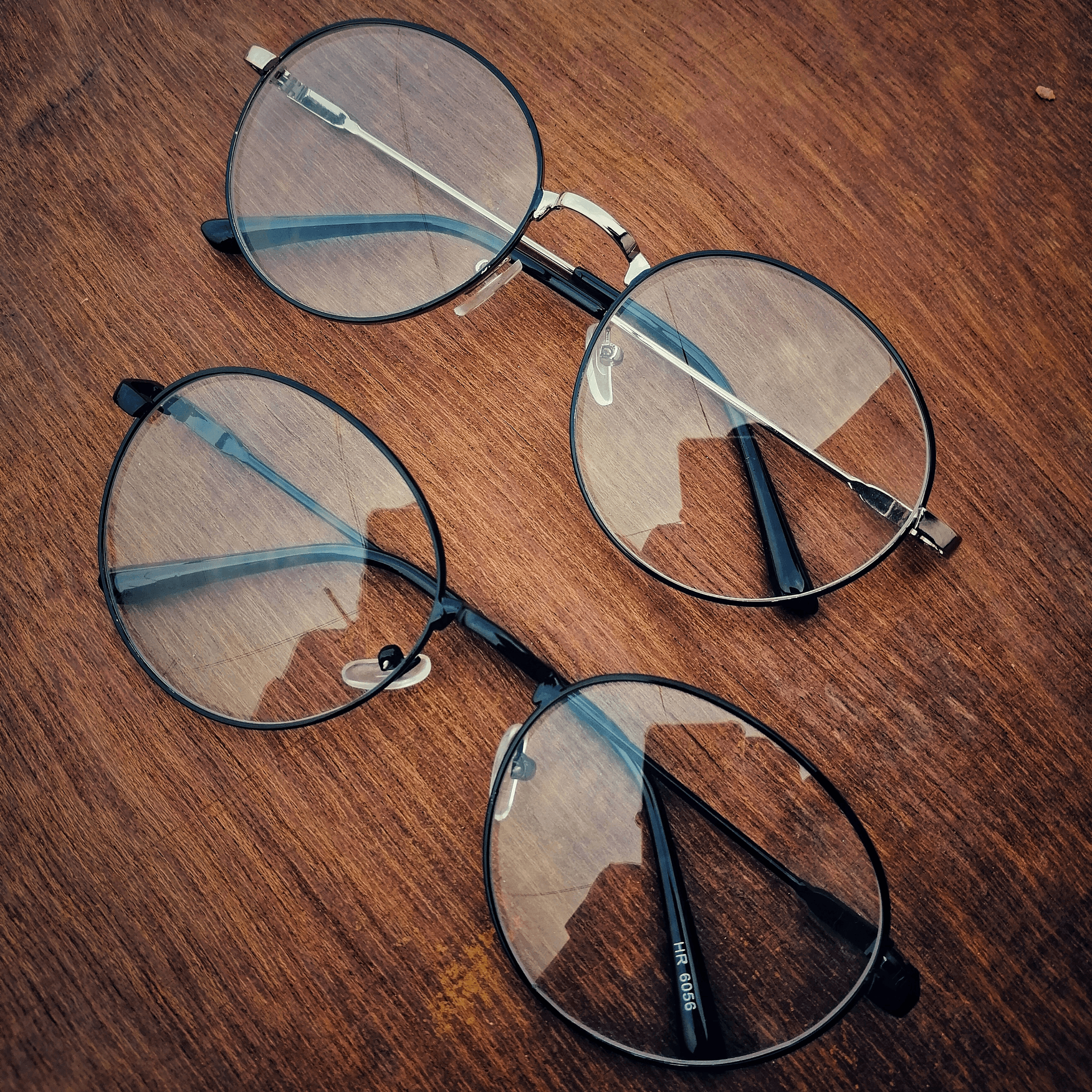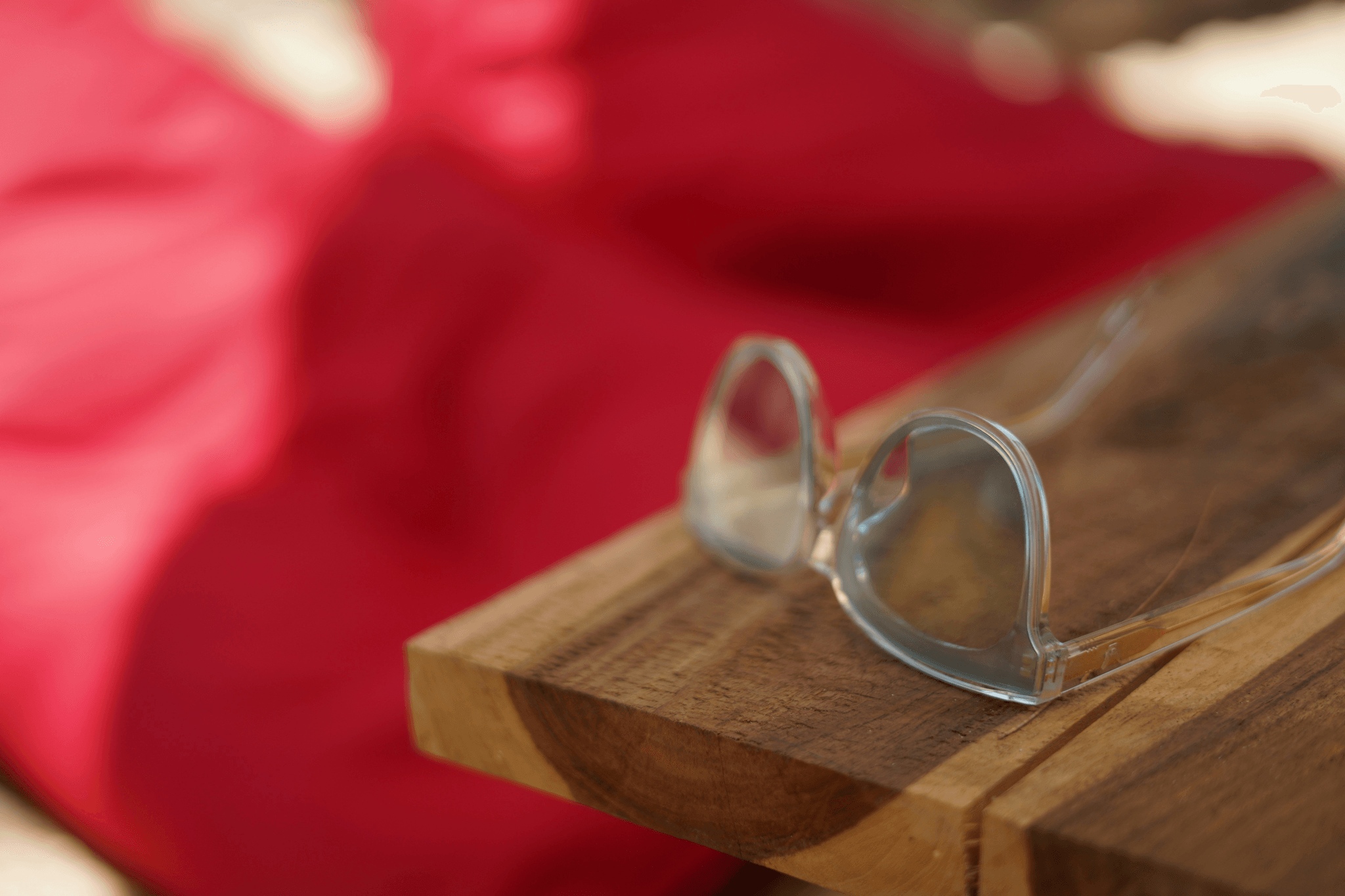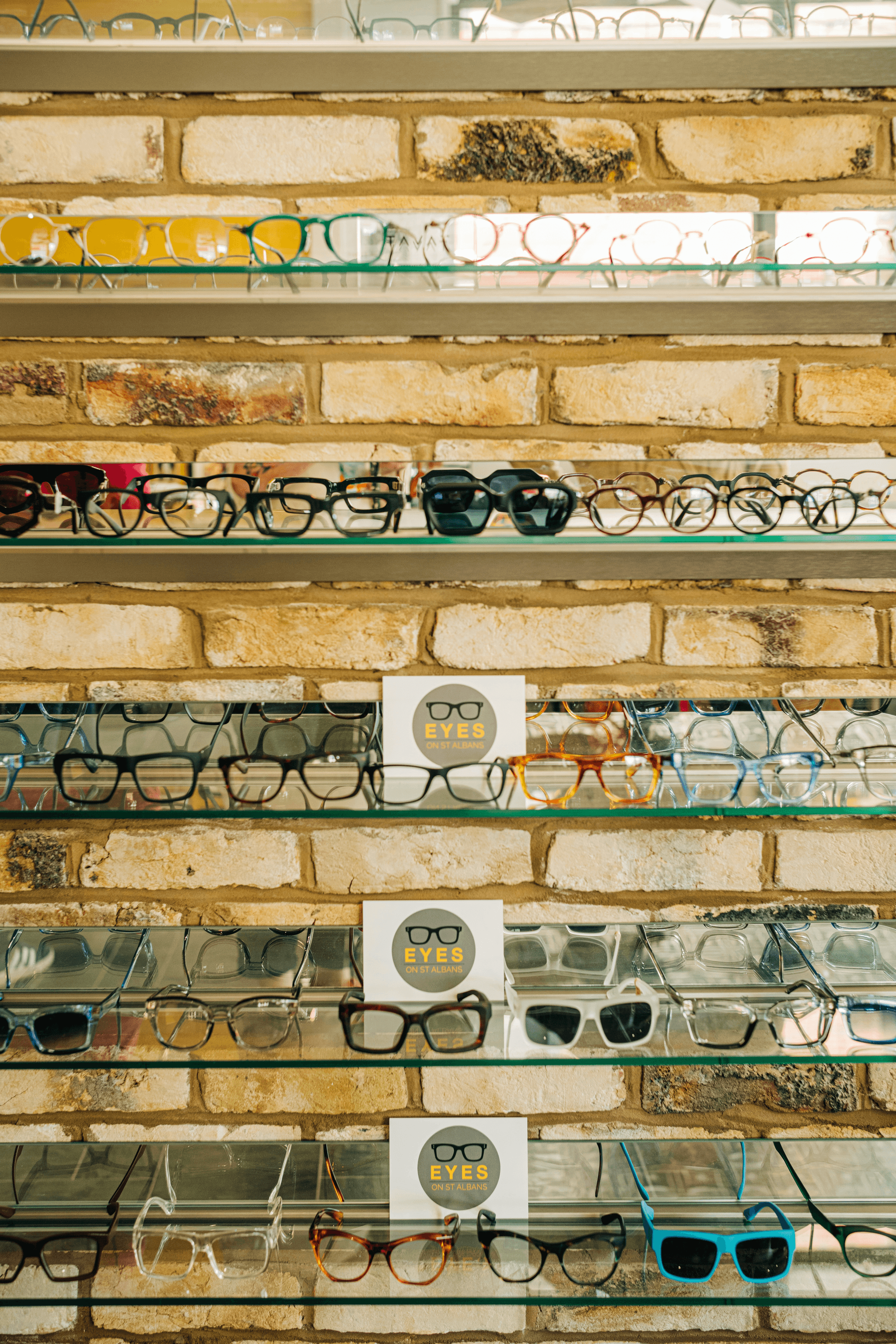Introduction

In addition to their aesthetic appeal, potential buyers often wonder about the longevity of these frames. How long do acetate frames last compared to other materials like metal or nylon? By understanding the differences between acetate and plastic, consumers can make informed choices that align with their personal tastes and values.
As we delve deeper into the world of eyewear, it’s essential to compare acetate glasses vs plastic and explore the unique pros and cons of acetate frames. Are acetate frames better than metal? Let’s uncover these questions together as we navigate through the fascinating realm of eyewear options.
Understanding Acetate Frames

Acetate frames have gained popularity in the eyewear industry due to their unique properties and aesthetic appeal. Made from a plant-based plastic, these frames offer a blend of style, comfort, and durability that many wearers appreciate. But what are acetate frames in eyewear? Let’s dive deeper into their characteristics and benefits.
What Are Acetate Frames in Eyewear?
Acetate frames are crafted from a material known as cellulose acetate, derived from natural sources like cotton fibers and wood pulp. This eco-friendly composition not only gives them a lightweight feel but also allows for vibrant colors and patterns that can elevate any look. So when you ask, Are acetate eyeglass frames good? the answer is often a resounding yes due to their customizable aesthetics and comfortable fit.
Key Features of Acetate Frames
One of the standout features of acetate frames is their versatility; they come in a wide range of styles, shapes, and colors to suit various tastes and preferences. Additionally, acetate is hypoallergenic, making it an excellent choice for those with sensitive skin or allergies to metals commonly found in other frame materials. When considering What is the difference between plastic and acetate frames? it's essential to note that while both materials are lightweight, acetate offers better durability and resistance to wear over time.
Why Choose Acetate for Eyeglasses?
Choosing acetate for eyeglasses comes with numerous advantages that cater to both fashion enthusiasts and practical users alike. For starters, how long do acetate frames last? With proper care—like regular cleaning and avoiding extreme temperatures—these frames can maintain their integrity for years compared to standard plastic options. Furthermore, if you're weighing your options between Acetate glasses vs plastic, you'll find that the former not only looks more refined but also provides greater comfort without compromising on style.
In addition to aesthetics and longevity, it's worth noting the pros and cons associated with different frame materials. The acetate frames pros and cons discussion often highlights how they combine style with functionality while being less prone to breakage than some metal alternatives—making them an attractive choice overall! And if you're curious about comparisons like acetate vs nylon frames, you'll discover that while nylon may offer some flexibility, it typically lacks the same level of color vibrancy or stylish appeal found in high-quality acetate designs.
Acetate vs Plastic: FAQs and Facts

What is the Difference Between Plastic and Acetate Frames?
At first glance, plastic frames might seem like a more economical choice compared to acetate frames; however, there are significant differences worth noting. While both materials offer lightweight options for eyeglasses, acetate is derived from natural cellulose fibers, making it a more robust and flexible alternative. Additionally, acetate frames can be customized with vibrant colors and patterns that often outshine traditional plastic in terms of aesthetic appeal.
Another critical difference lies in durability; while many plastic frames can become brittle over time or warp in heat, acetate maintains its shape much better under various conditions. This brings us to an important question: Are acetate eyeglass frames good? Absolutely! Their resilience makes them ideal for daily wear compared to their flimsy plastic counterparts.
Acetate Glasses vs Plastic: Which Is Better?
When comparing acetate glasses vs plastic options, personal preference plays a significant role alongside practical considerations. If you're looking for style and comfort combined with durability, acetate glasses often come out on top due to their luxurious feel and ability to retain color vibrancy over time. Plus, if you’re someone who frequently changes styles or colors in your wardrobe, having a versatile pair of acetates can elevate your fashion game effortlessly.
However, it's essential to weigh the pros and cons of both materials before making a decision. For instance, while acetate provides superior quality in many aspects—including longevity—plastic frames typically come at a lower price point. Thus arises another question: Are acetate frames better than metal? While metal may offer sleekness and minimalism that some prefer, they lack the warmth and creative potential that acetates present.
Long-Term Benefits of Acetate Eyewear
In terms of longevity—how long do acetate frames last?—the answer is quite promising! With proper care and maintenance (which we'll discuss later), these stylish spectacles can last several years without losing their charm or structural integrity. Unlike many other materials that may fade or break down over time due to exposure or wear-and-tear, acetates stand resilient against everyday challenges.
Moreover, owning a pair of high-quality acetate glasses means investing in sustainable fashion choices as well! Daposi Eyewear conducted extensive research to identify sustainable materials for their products; their commitment showcases not only fashion-forward designs but also an effort to reduce environmental impact caused by traditional plastics. By choosing such eco-friendly options like Daposi's offerings made from refined acetates instead of typical plastics or nylon frames—you'll be doing your part for Mother Earth!
The Durability of Acetate Frames

When considering eyewear, durability is a key factor, especially if you want your investment to last. Acetate frames are known for their resilience and longevity, often outlasting conventional plastic options. This durability makes them a popular choice among those asking, What are acetate frames?—they're not just stylish but also built to endure the rigors of daily use.
How Long Do Acetate Frames Last?
So, how long do acetate frames last? Typically, with proper care, they can last several years—often up to five or more—making them a solid investment in your eyewear collection. Unlike many plastic frames that may warp or break easily, acetate maintains its shape and integrity over time, leading many to wonder: Are acetate eyeglass frames good? Absolutely! Their longevity speaks volumes about their quality.
Maintenance Tips for Acetate Eyewear
To extend the life of your acetate eyewear, regular maintenance is essential. Start by cleaning your glasses with a microfiber cloth and gentle lens cleaner; avoid harsh chemicals that could damage the frame. Additionally, store them in a protective case when not in use to prevent scratches and bending—simple steps that make all the difference in ensuring your acetate glasses vs plastic option remains looking sharp for years.
Comparing Acetate Frames and Metal Frames
When comparing acetate frames and metal frames, each has its pros and cons depending on personal preference and lifestyle needs. While metal frames often offer a sleek aesthetic and lightweight feel, they can be less forgiving when it comes to flexibility compared to their acetate counterparts. Many wearers find themselves asking: Are acetate frames better than metal? It really depends on what you're after; if you value comfort alongside style—and let’s face it, who doesn’t?—acetate might just win this round.
Weighing the Pros and Cons

Acetate Frames Pros and Cons
Acetate frames boast several advantages that make them a favorite among eyewear enthusiasts. For starters, they are lightweight yet durable, providing comfort for all-day wear while maintaining a stylish appearance. However, one downside is that they can be more prone to scratches compared to other materials like metal or nylon, which may lead some to wonder: what is the difference between plastic and acetate frames when it comes to durability?
On the pro side, acetate offers vibrant colors and patterns that are hard to replicate with other materials. This versatility allows wearers to express their unique style without sacrificing quality or comfort. On the con side, if not cared for properly, how long do acetate frames last? Regular maintenance is key for longevity.
Are Acetate Eyeglass Frames Good?
Absolutely! Acetate eyeglass frames provide a blend of fashion-forward aesthetics and functionality that appeals to many consumers today. Their hypoallergenic properties make them suitable for sensitive skin types, which is another reason why people often ask: are acetate eyeglass frames good? The answer leans heavily toward yes!
Aside from being stylish, they also offer flexibility in design options—meaning you can find everything from classic shapes to modern styles in this material. Plus, if you consider eco-friendly choices in your purchasing decisions, Daposi Eyewear's commitment to sustainable materials makes their acetate glasses even more appealing.
Acetate vs Nylon Frames: A Practical Comparison
When comparing acetate vs nylon frames, it's essential to consider various factors such as weight, durability, and style options. While both materials offer lightweight solutions for eyewear enthusiasts, nylon tends to be more flexible and resistant to breakage than its acetate counterpart. However, this flexibility might come at the expense of aesthetic appeal; after all, what are acetate frames known for if not their stunning designs?
In terms of comfort during extended wear—especially if you're someone who frequently asks about how long do acetate frames last—acetate generally wins out due to its softer feel against your skin compared with nylon's stiffer composition. Ultimately though, whether you choose acetate glasses vs plastic or nylon will depend on your personal preferences regarding style versus practicality.
Eco-Friendly Eyewear Choices

In today's fashion landscape, sustainability has become a buzzword, especially in the eyewear industry. Consumers are increasingly seeking out sustainable materials that not only enhance their style but also minimize environmental impact. This shift towards eco-friendly options is evident in the growing popularity of acetate frames, which are made from renewable resources and offer a more responsible alternative to traditional plastic.
Sustainable Materials in Eyewear
When discussing what are acetate frames, it’s essential to highlight their sustainable nature. Acetate is derived from cellulose, a plant-based material that makes it significantly more eco-friendly compared to standard plastic frames. By choosing acetate glasses vs plastic, consumers can enjoy stylish eyewear while contributing to a healthier planet.
Moreover, many brands are now focusing on sustainable practices by utilizing recycled materials or biodegradable options in their eyewear production. This commitment not only helps reduce waste but also encourages the fashion industry as a whole to adopt greener practices. The question of Are acetate eyeglass frames good? can be answered with an enthusiastic yes—especially when considering their low environmental footprint.
Daposi's Commitment to Eco-Friendly Acetate
Daposi Eyewear has taken significant steps toward sustainability by conducting extensive research to identify eco-friendly materials for their products. Their commitment goes beyond just creating stylish designs; they aim to reduce the environmental impact of plastic waste through innovative solutions like using responsibly sourced acetate for their frames. By prioritizing sustainable practices, Daposi demonstrates that fashion-forward choices can coexist with ecological responsibility.
The brand’s focus on producing high-quality acetate frames highlights the durability and longevity of these products—how long do acetate frames last? With proper care and maintenance, they can last for years, making them a worthwhile investment as opposed to frequently replacing cheaper plastic alternatives. Daposi's efforts underscore that choosing environmentally friendly options doesn’t mean sacrificing style or quality; instead, it enhances the overall experience of wearing fashionable eyewear.
The Future of Acetate in Sustainable Fashion
As we look ahead, the future of acetate in sustainable fashion appears bright and promising. With increasing awareness about climate change and environmental issues, consumers are becoming more discerning about what they wear—including asking what is the difference between plastic and acetate frames? Brands like Daposi lead the charge by providing fashionable yet eco-conscious choices that resonate with today’s environmentally aware shoppers.
Furthermore, as technology advances and more brands explore innovative ways to create sustainable products, we can expect an even broader range of options within the realm of eco-friendly eyewear choices. The ongoing dialogue around Are acetate frames better than metal? continues as designers experiment with new styles that combine aesthetics and sustainability seamlessly alongside traditional materials like nylon or metal—prompting comparisons such as acetates vs nylon frames.
Ultimately, embracing eco-friendly choices like acetate not only benefits individual consumers but also contributes positively toward our planet's future—making every pair of stylish glasses an investment into sustainability itself.
Conclusion

In summary, acetate frames offer a unique blend of style, durability, and eco-friendliness that sets them apart in the eyewear market. Understanding what are acetate frames can help consumers appreciate their aesthetic appeal and practical benefits. Whether you’re considering the long-lasting nature of acetate or its vibrant colors, these frames are certainly worth your investment.
The Unique Appeal of Acetate Frames
Acetate glasses vs plastic is a debate that often leads to one clear winner: acetate. With their rich color variations and ability to be molded into unique shapes, acetate frames provide a level of customization that plastic simply can't match. Plus, when you ask yourself, Are acetate eyeglass frames good? the answer is often a resounding yes—thanks to their lightweight yet sturdy construction.
Making the Best Choice for Your Eyewear
When choosing between materials like metal and nylon, it’s essential to weigh the pros and cons of each option. Are acetate frames better than metal? The answer largely depends on personal preference; while metal offers sleekness, acetate provides warmth and comfort against your skin. Ultimately, understanding how long do acetate frames last can help you make an informed decision about your eyewear investment.
The Environmental Benefits of Choosing Acetate
Daposi Eyewear's commitment to sustainability shines through its use of eco-friendly materials in crafting stylish glasses. By opting for acetate over traditional plastic options, you're not just enhancing your wardrobe but also contributing to reducing plastic waste in our environment. This thoughtful approach aligns perfectly with the growing demand for sustainable fashion choices—making it easy to see why more people are asking about what is the difference between plastic and acetate frames.
